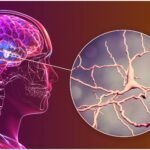Everyone experiences anxiety sometimes. Psychologists say that this is a normal reaction of the body to certain stressful situations or irritants. Accelerated pace of life, a large number of tasks in the routine, information noise only increase the effect and make us experience anxious states.
Anxiety can cause both significant events for a person, and intrusive thoughts associated with events occurring in the world, personal failures and other factors. It’s important to be able to distinguish between “healthy” anxiety, which implies temporary anxiety, and anxiety disorder, which has a regular character and can become the cause of pathology.
Let’s discuss the main signs, symptoms, diagnosis and treatment of anxiety disorder, as well as how to distinguish it from regular anxiety.
What Is Anxiety
Anxiety is a negative emotion that is accompanied by feelings of uncertainty, discomfort and a premonition of negative events. Such emotions can be experienced before a decisive event or celebration, an important meeting, speaking in front of an audience and many other situations that can provoke emotional tension and feelings of anxiety.
Anxiety lasts for a short time and varies in intensity depending on the situation, making a person restless and frightened for no apparent reason. Natural anxiety leaves the person as soon as the stressful situation is resolved or the event comes to an end. We can talk about pathology, i.e. anxiety disorder as a disease, in case this anxiety becomes prolonged, constant and manifests itself to a high degree, as anxiety disorder is a type of neurotic condition. If you understand that you feel anxious regardless of whether there is an important event planned in your life or you are in a state of stress for a specific time for certain reasons, then most likely you are facing a pathological anxiety disorder.
You can distinguish “healthy” anxiety from an anxiety disorder by analyzing the duration and intensity of the anxiety and its accompanying symptoms.
“Unhealthy” anxiety can appear at any time for no apparent reason and become uncontrollable, so it will be almost impossible to get rid of it independently. As a result, a person is faced with nervous breakdowns, emotional exhaustion, which prevents him from leading their usual way of life, still spending time with their family, playing at news.22bet.com, and completing work duties. That’s why it’s important to be able to distinguish the intensity and degree of anxiety and diagnose anxiety disorder in time.
Causes of Anxiety
Besides stressful events and situations, other factors can cause the appearance of anxiety, and then anxiety disorder: genetic predisposition; unstable psyche or sensitive temperament; psychological trauma; imbalance of neurotransmitters, chemical mediators of signals between nerve cells; somatic diseases, including endocrine diseases; abuse of drugs and psychoactive substances.
Symptoms and Signs of Anxiety
An anxiety disorder has so-called markers by which the overall condition can be diagnosed. For example, one of the main manifestations is motor tension (tremors, headaches, fidgeting); excessive irritability and uncontrollable anxiety. Moreover, researchers note a frequent lack of appetite, sleep disturbance. Accompanied by a strong sense of fear and phobias.
To make an accurate diagnosis, these symptoms must manifest themselves over a period of several weeks. This means that to properly diagnose a mental disorder, it’s necessary to observe the behavior and general condition of a person for a month or more. There are certain diagnostic methods, such as an initial individual consultation with a specialist to identify emotional reactions, psychodiagnostic examinations and projective testing, that identify co-occurring disorders.
As a result of the diagnosis, the specialist may identify one of the following forms of anxiety disorder. Adaptive anxiety disorder, which involves increased anxiety and other emotional reactions in the process of adapting to a stressful situation. Generalized anxiety disorder, or anxiety-depressive disorder, is also characterized by excessive anxiety that can last and manifest itself in a person’s regular feelings of fear for their life, loved ones, work, etc.
Anxiety-phobic disorder is accompanied by panic attacks, intense fear and anticipation of negative events, such as death or serious illness. Obsessive-compulsive disorder (OCD) can be described by the presence of intrusive and repetitive thoughts, i.e. obsessions, and compulsive responses and actions, compulsions.
Treating Anxiety
Like any other disease, mental disorder, especially anxiety, requires a comprehensive approach, namely a set of different methods on several fronts. In the case of medication treatment, the doctor prescribes a set of medications to combat physical tension and increased anxiety and to support a positive mood. The drugs that are prescribed in this type of therapy are issued strictly according to the doctor’s prescription, and the person, in turn, must be under medical supervision and control.
Psychological therapy includes cognitive-behavioral therapy, in which the doctor helps to direct the patient’s thoughts toward a positive outcome, and behavioral therapy. During behavioral therapy, patients learn muscle relaxation techniques, deep breathing, and visualization.
However, only a knowledgeable professional can correctly identify and prescribe treatment, regardless of the degree and form of anxiety disorder. It’s the doctor who can help prevent the disorder from developing further into severe mental health complications.
Unfortunately, most people prefer to put up with the constant feeling of anxiety, not seeking help in time and trying to cope with anxiety on their own. However, if you recognize the symptoms listed above and distinguish habitual anxiety from a potential anxiety disorder on your own, you should seek psychological help.










